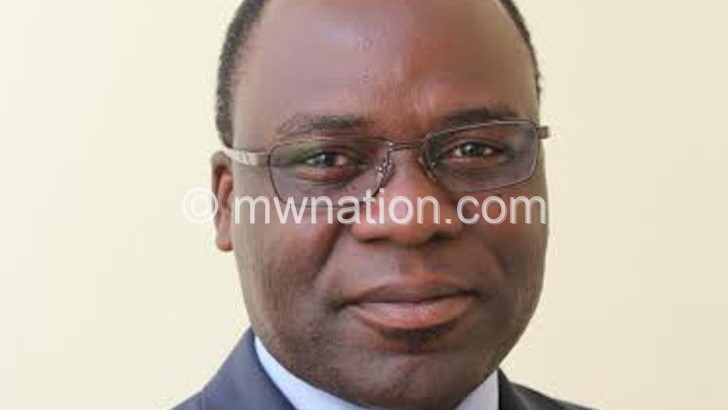‘Every call affects 18m’
Former president Peter Mutharika fished Dr Bright Molande from the University of Malawi’s Chancellor College to become his executive assistant and director of communications for four years. What did the position entail? Our Features Editor JAMES CHAVULA catches up with the man who first occupied the position now occupied by Sean Kampondeni in President Lazarus Chakwera’s administration.

What did your appointment mean?
President Mutharika wanted a personal secretary with presidential executing powers in coordinating government along with the Chief Secretary to the Government. I chose to be known to the public as director of communications. Being executive assistant to the President is probably the most sensitive job in the country because what you say and do is understood as coming from the President himself. You are an extension of the President’s office. So, it needs a lot of humility, maturity, political sensitivity and being very discreet. You must be made of solid stuff to work next to the President for four years without a scandal.
As the President’s executive assistant, your first job is executing the President’s directives and orders. Making sure that his will and policies are being done. But I was also the first point of engagement with offices of other Heads of State, Cabinet ministers, the Chief Secretary, diplomats and people who want to access the President when they can’t find him. Basically, I understood myself as the President’s messenger—no more and no less.
Were you the speech writer for the President as some quarters opined?
Not exactly. I only participated in the writing of his speeches. The making of a President’s speech is a complex process. The President would direct me what he wants to speak, the relevant ministry would advise the policy content and I would do the poetry of it all. Finally, the President would read and approve with his final authority.
Sometimes, APM would directly call and check with his Cabinet ministers if something wasn’t sounding right. Sometimes, the President would make fundamental changes to the final speech without telling you. There are times APM would reject the whole speech and you would have to rebuild it from the start. Eventually, we had very successful speeches even at the United Nations.
Of course, I am a professional speech writer and I can write even for an American President. I am a poet and I was the first academic to offer a course on public speaking in the University of Malawi. And I always said to my students: in order to write a speech for a President, you have to think like one. That is the principle and the challenge.
How are you spending your days then after the busy and sensitive office?
I decided to sit down and write a book on poetics, a theory on literature or a philosophy of literature if you like—something that Aristotle started 2 300 years ago and needed a decidedly comprehensive rethinking. This book was developing while I was serving. I also teach in the university. But nearly all of us can teach as university lecturers. Fewer can publish and speak the language of the university, even rise to professorship. Only the fewest can generate new ideas that challenge the thinking of a generation. That is the difference between university lecturers, academics or scholars and intellectuals. I returned to the university, yes, but I want to find my place somewhere within those three categories.
As a person who sat and worked next to a president, what can you say is the job description of a Head of State?
The President has one job—and only one—on his desk: To make decisions. You lead by making decisions and making pronouncements. That is the politics of language and the language of politics.
The President is there to make the highest decisions which constitutionally nobody can make or a decision which everybody has failed to make. He provides answers to questions which nobody can answer. And he solves problems which the whole system cannot resolve. Otherwise, everything else must be delegated to be dealt with at other levels of government and only reporting to him.
That does not mean the President is a god who has all the solutions. But it is part of being a good decision maker to research, consult, build teams, coordinate the teams and make the final judgement and decision. Above all, take responsibility for the decision you make. But there are also decisions that must be with plausible deniability as well.
There was an impression that Mutharika was slow at making decisions. What do you say to that?
He wasn’t slow. He was only being very careful. When you are a President, you don’t make decisions to please people or satisfy public anxiety or just to be seen to be responding to social media demands. Of course, satisfying public opinion is part of good politics. But that is not the core function of the President. You make decisions to provide solutions and guidance. What is the point of rushing into regrettable decisions that threaten the country?
We used to say every decision is equal to 18 million lives. Likewise, every decision I make is equal to the lives of my family. That is the principle of responsibility in decision-making. The President must also know the difference between responding to a situation and reacting to it. You respond by devising and providing a solution. But reacting means you are merely expressing your feelings and thoughts about the situation, maybe expressing your sorrow, unhappiness, frustration, anger etc. President Mutharika was always very clear at separating issues from non-issues, between responding and reacting.
And President Mutharika was also extremely good at understanding that power is responsibility and that power is not status. If you know that, then you make every decision with a sense of responsibility to the country and the people.





